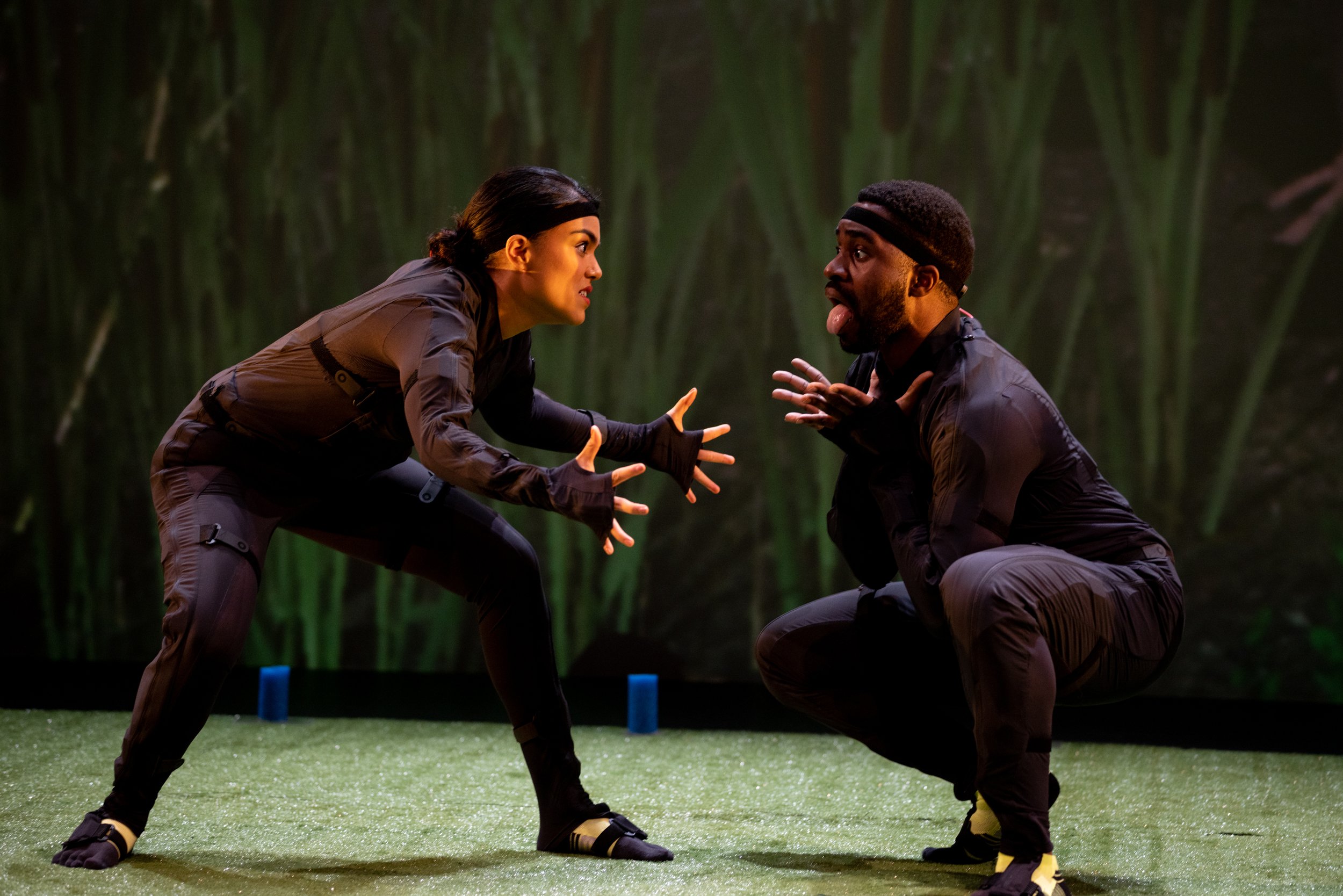

Lizardly
Lizardly is a live, mixed reality play created by Kat Mustatea and Heidi Boisvert that explores AI, environmental collapse, and interspeciality.
Vincent and Rebecca’s marriage is falling apart as they brace for an oncoming hurricane—and if that’s not bad enough, they are also turning into lizards. Set in post-anthropocene Miami, the drama unfolds in the aftermath of various ecological cataclysms: rising oceans, aggressive mold, bio-engineered flora that conduct electrical current. Humans have not been wiped out, so much as they have adapted to rapid environmental shifts by mutating into lizards. Vincent and Rebecca have no choice but to weather the storm inside their smart-home, a technological remnant named June whose functions (and malfunctions) they weaponize in an escalating domestic turf war.
The staging employs VR, MoCap and Machine Learning to create a vivid portrayal of hybrid humans in a posthuman world. Lizardly premiered at MAXLive 2021: The Neuroverse, co-produced by New York Live Arts.
Duration: 25 minutes - Cast: 2 main performers, 1 supporting
Lizardly was named among the Digital Dozen Breakthrough in Storytelling Awards from Columbia Digital Storytelling Lab, 2022
Awards
2022 Digital Dozen Breakthrough in Storytelling Awards, Columbia Digital Storytelling Lab
Performances
Premiere: MAXlive 2021: The Neuroverse, November 2021
Performing Tech / Live Artery @ New York Live Arts, January 2022
Credits
Concept: Kat Mustatea, Heidi Boisvert
Script: Kat Mustatea
Creative Technology: Heidi Boisvert
Performers: Joshua Echebiri, Rina Dutta, Kira Davies
Sound Design: Cecilia Lopez
Production Design: Andrea Lauer
Lighting Design: Allen Hahn
Choreography: Pauline Jennings, Joshua Lacourse
3D Modeling Intern: Shequana Garnett
Unity Programming Intern : Patrick Rufino
Co-produced by: New York Live Arts and Media Art Xploration
Support
New York Live Arts
Residency at The Movement Lab at Millstein Center, Barnard College
CAVE at Leimay
Additional support from University of Florida College of the Arts with support from the Banks Family Preeminence Chair and UF Research
New York City College of Technology, Entertainment Technology Department



